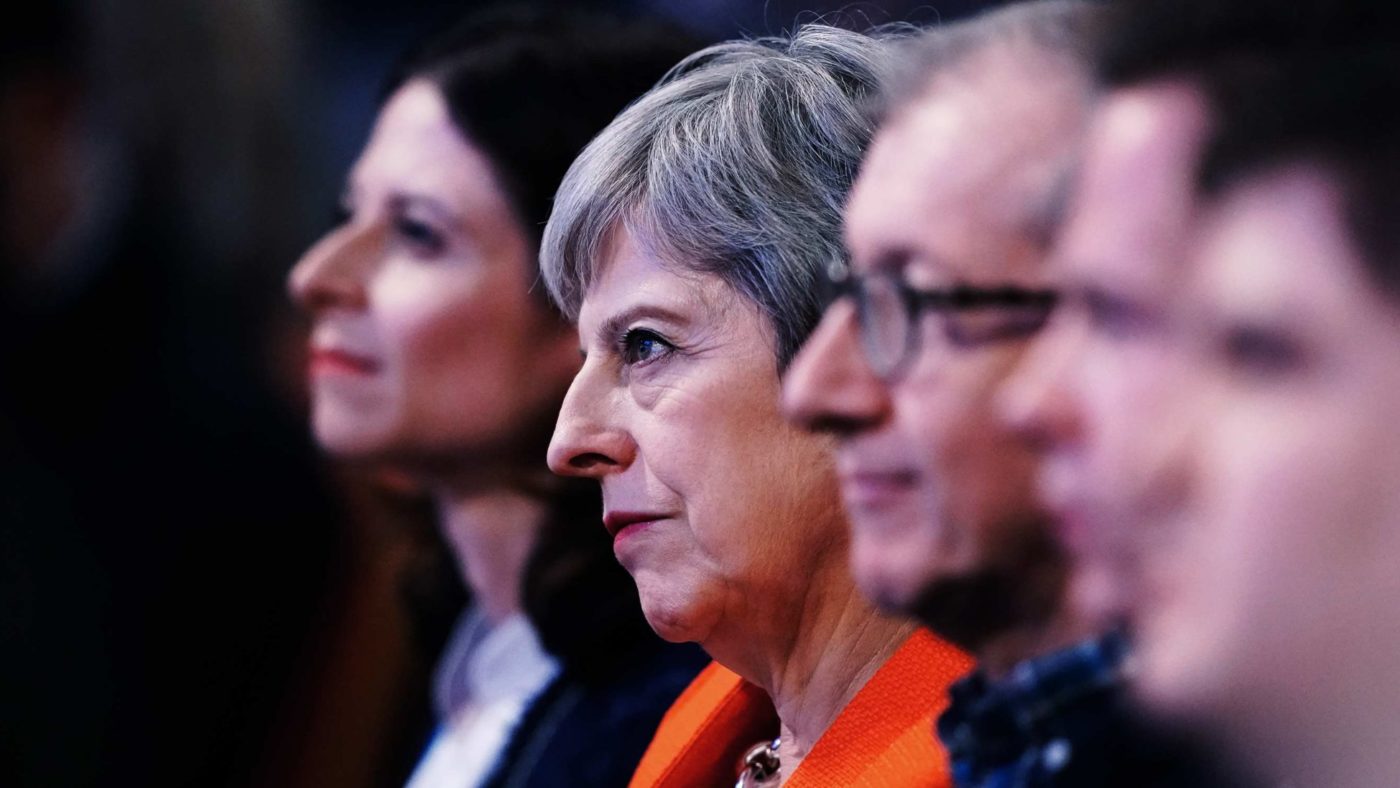According to conventional wisdom, Theresa May is on the back foot. But this needn’t be the case. The modern world gets more exciting by the day and a Prime Minister that grasps the opportunities afforded to her by these changes could usher in greater prosperity for Britain.
Mrs May’s predecessors understood this. In the 1980s and 1990s, under Margaret Thatcher and John Major, the Conservatives pioneered policies that put power into the hands of individuals: building a property owning democracy through privatisation, helping people own their own homes through right-to-buy, and radically reforming business taxes to get Britain booming.
With policies like pension auto-enrolment, David Cameron made share ownership a reality for millions. He sparked a jobs miracle by bringing down corporate tax rates and took millions of low-earners out of tax altogether.
None of this was by accident. They believed clearly in Conservative ideas. And their policies matched their intents.
When Mrs May called for 1000 new policies from Tory members and the general public, we at the Adam Smith Institute jumped at the chance to help her repeat the success of her predecessors. Now, we wouldn’t be advocates of Adam Smith if we didn’t believe in the efficient division of labour, so we’ve only done 10 per cent of the work, proposing 100 policies that we think will help people live happier, freer, and richer lives.
We thought there was no better time to deliver them than at conference, where the battles of ideas is centre stage. Here in Birmingham, it really does feels like ideas are being debated again, in no small part thanks to the likes of George Freeman MP and his crusade to being debate back through events like the Big Tent Ideas Festival. And of course with Ministers like Liz Truss fighting for the expansion of freedoms and using optimism about the future to win over millennials.
Not all of our proposals are new: scrapping inheritance tax and merging National Insurance and income taxes have been proposed at Conservative Party Conference before. But others are just coming to the fore: free movement between Canada, Australia, New Zealand and the UK; or letting businesses immediately deduct all new spending on plants and equipment — a large part of why America is growing so strongly again.
We also think Mrs May could engage with evidence in policy and with the youth by legalising cannabis; it should even appeal to her upbringing as a vicar’s daughter. After all, reducing harm, ensuring that people are better able to make informed decisions, removing power from gangs, and keeping children safe are Tory principles that should inform policy in this area.
On housing, which seems to be costing the Tories voters in those all-important marginal seats, we propose several measures: scrapping help to buy, releasing a small section of the green belt for development, scrapping stamp duty, allowing micro homes in city centres, abolishing anachronisms like protected views. Forget Brexit, it is housing that is Britain’s most pressing problem. Taken together, our policy list could transform a housing crisis into an opportunity for renewal.
Beyond these perennials there are some eye-catching newcomers. Let’s see how Labour leadership would react if the Conservatives were to propose taking refugees in large numbers from Venezuela. Would the Corbynistas that deny it was ever real socialism be able to remain in unholy coalition with those that fight for human rights? Will they be able to ignore those trying to escape that very real socialism in what is currently the largest refugee crisis on the planet?
What about Brexit? Well, it’s what happens after Britain leaves the EU that really matters. Let’s scrap state subsidy for agriculture, end the immoral ban on gene editing crops, introduce tradable fishing quotas like Iceland, end the cap on banker’s bonuses and commit to repealing any Link Tax that comes in before we leave.
In other words, let’s get rid of Brussels’s anti-science, anti-evidence and anti-market policies. We can work with partners countries that believe in free trade to bring down barriers with the EU from the outside. And we must continue through the Foreign Office to work with partner countries inside the EU to stop any more absurd regulation coming in.
“That’s all very well,” you may say. “But what about the pound in my pocket?”
Well. We’ve got your back. Let’s reduce the UK’s marginal effective tax rates on investment to zero. So if you want to invest you’ll be earning more money, and the country will be richer for it. We say drop Insurance Premium Taxes, so you’re not divvying out 20 per cent of any premium to the taxman to cover your valuables in a private market. We suggest the Tories make childcare affordable by cutting regulation. And we demand a link of the personal allowance to the minimum wage, so no one earning that basic amount will be handing over money to the Chancellor.
This list is radical, I’ll happily admit that. But it is reasonable. And I’ll bet the ideas have many supporters among the rank and file at Conservative Party Conference this week. Many Ministers and MPs have the right instincts: wanting to boost freedom, remove barriers to competition, and reduce the burden of the state.
This list is in no way exhaustive but we hope that this will put them on the front foot.
Adopting these policies would solve some of Britain’s most intractable problems. A Prime Minister who introduced them would go down as one of Britain’s transformative leaders — like a good number of your Conservative predecessors.


